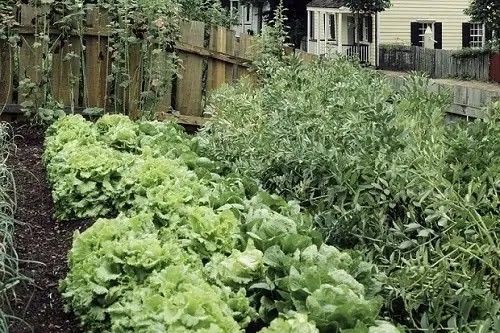Garden Fresh: 5 Fruits and Veggies You Can Grow in the Winter

The days are getting shorter, the air is getting colder and the nights are growing longer. While many of us may be yearning for spring, it’s time to start preparing our gardens to stay fresh through the winter months. There are still several fruits and vegetables that can continue to grow and even thrive during the cooler seasons of the year—so long as you take proper care of them while they do so! Here are five fresh fruits and veggies you can grow in your garden when it gets cold outside!
1) Cranberries
Even though summer is long gone, that doesn't mean your garden should go dormant. In fact, with a few tweaks, it's possible to keep your garden alive all year long!
Cranberries are one of my favorite winter crops to grow. They are small plants with large berries so they're quick to produce. Plus, cranberries are native American crops so I find them extra rewarding to grow when I imagine harvesting them hundreds of years ago! Cranberries do best on neutral soil that has a pH between 6-7 (too acidic or too alkaline will give you little fruit). Fertilize with manure tea as needed. Soak seeds for 24 hours before planting them 1/2 inch deep in moist sand.
2) Rutabagas
Rutabagas are root vegetables, typically white or yellow-fleshed with black, purple, or red skin. They are also called swedes. Rutabagas taste sweeter than turnips but more earthy than carrots. Roasted rutabaga will stay fresh in the fridge for two weeks to four weeks depending on how many layers of plastic wrap you use. Cooked rutabaga can be mashed or pureed just like potatoes and then used as a side dish for breakfast, lunch, dinner, or dessert.
3) Broccoli
This vegetable is one of those that is always good to grow, so you can have it fresh on hand at any time. Growing Broccoli not only means you'll get to enjoy eating it, but it also has many health benefits as well. It's rich in protein and vitamin C helps lower blood pressure, reduces cholesterol, has anti-cancer properties, lowers chances of diabetes, and improves thyroid function among other things. Plus! If you grow your own Broccoli sprouts they are known to be the most nutritious of all green vegetables.
The benefits of this plant don't stop there; it's also a healthy addition to any diet due to its high fiber content which makes us feel fuller for longer periods of time.
4) Onions
It might be hard to imagine growing veggies in the winter, but it's not as difficult as you might think. Plus, most of these are pretty easy to grow, making them a good starting point for novice gardeners or those with limited space.
#1. Onions (Aha)
It might seem obvious but onions are easy to grow even during winter months. All that is needed is a sunny spot that isn't too hot and preferably won't get full sun midday, like near a south-facing wall. A wire mesh netting can also help prevent weeds from getting into the bed where your onions will be growing.
5) Rhubarb
If you're looking for a perennial vegetable, try rhubarb. It's been cultivated for over 2,000 years and it can grow in many different climates and conditions. Rhubarb is excellent to use with strawberries or cherries because they both come into season during the rhubarb's winter growing time. Plus, rhubarb goes very well with other fruit that is often seasonal vegetables like tomatoes and bell peppers. Since it likes to be planted on hillsides or sloped areas, which makes harvesting easier, consider adding this plant to your garden!
Post a Comment